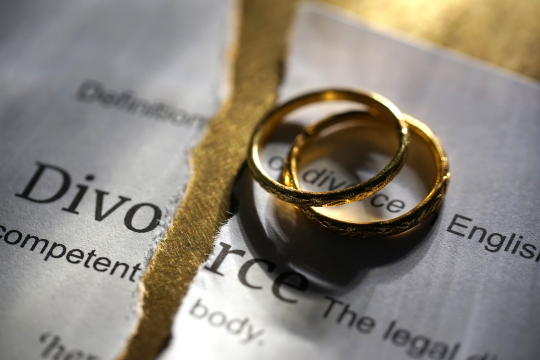Good Divorce Week 2025 – There is Another W...
Legal Advice for Dividing Business Assets on Divorce.
Dealing with company shareholdings and business assets on divorce can be one of the most fraught and complex elements of the financial settlement.
Whether it is an owner managed business, or a stake in a private company, the assets involved can often be the most significant in the settlement. Understanding how to accurately value and distribute these assets is vital.
Assets held in a company or business are treated differently than other assets such as property, cash, and even publicly listed shares (together sometimes referred to as “copper-bottomed” assets), which are seen as less risky and easier to value. Accurately determining the value of a business is complex, as many of the assets would be difficult to split off and sell.
It is also important to remember that, as with other types of property, there may well be deep emotions connected with a business, which you may have spent many years growing and developing. You need clear, practical, and commercially minded advice from experts in managing the distribution of business assets on divorce.
Our team of divorce solicitors has years of experience supporting clients and ensuring their financial settlement properly reflects their wishes. Please give us a call for a friendly, confidential, chat about how business assets will be handled in a divorce and any other questions you might have.
Our Companies & Divorce Expertise
Our solicitors are well equipped with the knowledge to best advise you on dealing with company shareholdings and assets following divorce. Get in touch today and we would be more than happy to help.
Our team are proud of our reputation for offering the highest levels of expertise alongside the best customer service. We work together with our clients to ensure we understand their wishes and their unique circumstances. Divorce is an emotional and often distressing time – we will be by your side to offer calm and practical solutions.
Our experience with complex business structures, trusts and pensions has been recognised in the two leading legal directories, Chambers UK and The Legal 500. We are also renowned for our deep understanding of family farming partnerships, as evidenced by our membership of the NFU’s legal panel. We are also experts in the Collaborative Law approach and are committed to achieving the aims of our clients with the minimum of stress and disruption.
Your Company & Divorce questions answered
The court does have the power in appropriate cases to order that a company be sold (depending upon its ownership) if it is not possible to fairly divide the assets of the business. However, this is rare, especially if the business provides the sole or main source of income for one or both parties.
In circumstances where the assets of the business are illiquid and difficult to distribute, or where a proportion are owned by non-parties to the divorce, the court will look to find other ways to achieve a fair settlement, such as offsetting the value of business assets against other property.
If the sale of the business is considered the only way of achieving a fair result, the court will usually try to mitigate the impact by structuring the terms of the financial settlement so payments to your former partner are staged, allowing the owner-manager of the business time to raise funds or to find a suitable buyer at a reasonable price.
The first step when dealing with a company on divorce is an accurate valuation, which must be declared in the initial disclosure statement, the “Form E“. We can assist you in obtaining a reasonable valuation, supported by evidence from the accounts and possibly a statement from your accountant.
In many cases, this evidence is enough to gain the agreement of the other party. It is always better to come to an amicable agreement on the value of the business, and we are experienced in considering the various different types of business and company valuations.
If the valuation is challenged by your former partner, the court may appoint an independent expert, deemed to have been instructed by both parties, to provide a valuation.
The value of the business will be determined by a range of factors, including:
- The structure of the company ownership
- The health of the balance sheet
- Assets held by the business (stock, property, vehicles etc)
- Pension schemes
- The borrowing capacity of the business
- The liquidity of the assets of the business (i.e. how easy it is to turn the assets into cash)
Equal division of assets is a guiding principle of the English divorce court. This applies to company and business assets, even when one party has been the main driving force behind the growth and success of the enterprise.
It may be possible to ring-fence a company or business if it was inherited, or established before the marriage, but this is less likely if income from the company was used to support you as a couple during the marriage.
The court will also always consider arguments where, even though one party was not directly involved in running the business, their contribution to other aspects of the relationship allowed the business to be successful. This means, even if you are not a director or shareholder of the company, you may still be entitled to receive recognition for your contributions to indirectly supporting the business as part of a financial settlement.
In cases where a separating couple own a business or company together, it is usually unreasonable to expect them to continue to work together. If an agreement between the parties cannot be reached, the court will usually try to find a way to divide the assets of the business.
If transfer of ownership to one of the parties is permitted by the incorporation documents of the company, the court has the power to order such a transfer. This means one party would have sole ownership. This is usually the preferred method, as it provides a clean break.
Transfer of ownership can be achieved by one party buying the other’s share of the business, or the company itself buying the shares back. There are tax consequences to these transfers, and we will assist you in seeking professional advice regarding which method is most favourable in your circumstances.
However, where it is not financially possible for one party to buy out the other, a shareholder agreement can be drafted which regulates the way the business will be run following the separation of the parties. This usually involves ensuring neither party can make major decisions alone. This will often create significant difficulties in running the business, but it can be an effective temporary measure until one party is able to buy the other out.
Evidence for the valuation of the business is likely to take the form of business accounts for the previous two financial years, as well as supporting documentation from your accountant. Additional information may be required during negotiations with the other party, or by the court, including incorporation documentation, annual returns, profit and loss accounts and forecasts. A specialist forensic accountant’s report may be required if the business is especially complex.
The stronger the evidence in support of your valuation, the more likely it will be accepted. We understand how this valuation process works and will guide you in obtaining the right documents to secure it.
Family businesses are often held on a 50:50 basis, meaning the consent of both parties is required for decisions to be made. On the breakdown of the relationship, this can leave the company unable to function.
In these circumstances, early advice from an expert family lawyer is required. We have experience in negotiating temporary arrangements for the running of businesses during divorce proceedings, enabling both parties to feel comfortable, while allowing the company to continue to trade successfully.
Where necessary, we are able to put together a multidisciplinary team, with experts from a range of legal departments, to ensure the advice you receive is comprehensive and robust.
In circumstances where one or both parties in the divorce is a minority shareholder in a business, the value of the shareholding is usually relatively easy to calculate once a valuation of the entire business is agreed. The value of the shareholding is usually treated as a marital asset and included in the pot to be shared in the financial settlement.
If one party wishes to continue to hold the shares in the company, the value of the shareholding is usually offset by other marital assets. In this way, the relevant party continues to own the shares and remains involved in the company. If this is not possible, the shares could be sold, or bought back by the company, and the cash shared between the parties.
What our clients say.
Contact the Family Law Team at Lanyon Bowdler
Lanyon Bowdler is a member of the Law Society Family Panel and accredited specialist with Resolution, a national organisation of family lawyers, so you can be sure our solicitors are experienced in all aspects of law in England and Wales.
Our divorce lawyers are approachable and professional, and will always adopt a balanced and practical approach to negotiations, minimising conflict and working to an acceptable outcome for you. Our aim is to achieve amicable resolutions swiftly, but if litigation is necessary we have the experience and know-how to deal with the courts effectively.
Please give us a call for a friendly, confidential, chat about how we can help support you when you or your family need legal advice and representation.
By choosing Lanyon Bowdler for family law legal advice, you can rest assured that you have the best legal expertise on hand no matter what the situation. We are committed to providing exceptional levels of client care and will work closely and considerately with you to help find the best outcomes. Our Family Law Solicitors team has great experience in all areas of family law.
We have offices in Shrewsbury, Bromyard, Conwy, Hereford, Ludlow, Oswestry and Telford, so are able to act for clients throughout Shropshire, Herefordshire, Mid and North Wales and across the Midlands (including Wolverhampton & Birmingham). As a leading full-service law firm, we are able to represent clients throughout England and Wales, as well as overseas where applicable.
Meet the team.
Latest knowledge.
Our awards and accolades.
Get in touch.
"*" indicates required fields

 Back
Back
























 Blog
Blog




 Podcast
Podcast















